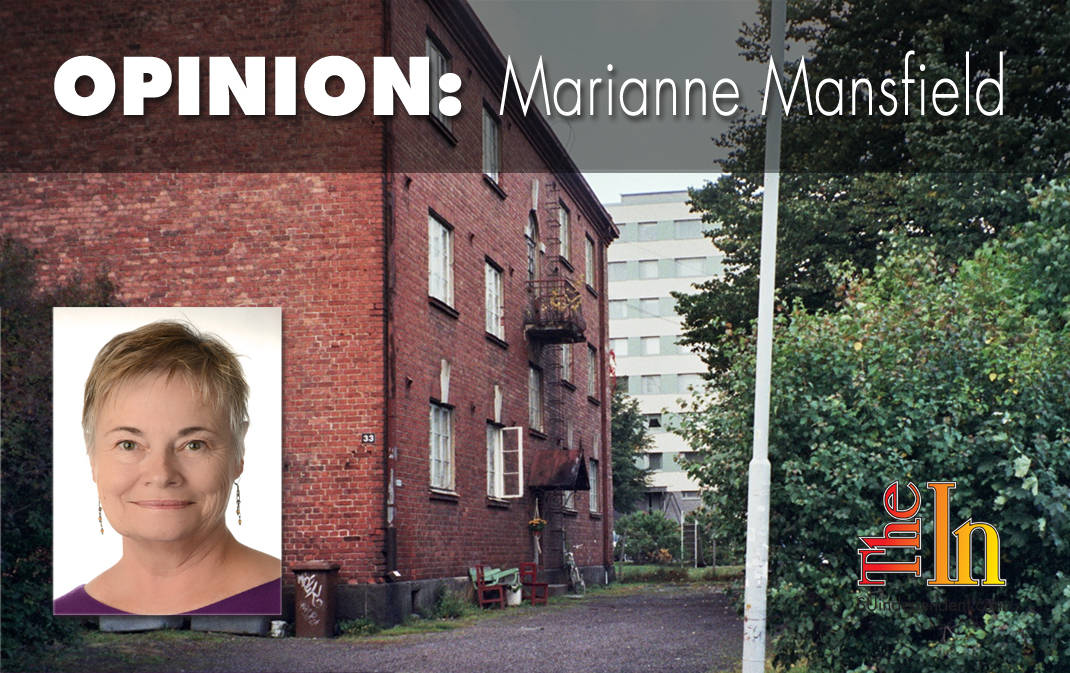
Recently, I spoke to a woman here in St. George who left jail early last year with two things: a bit of money in her pocket for housing and a felony appended to her name (which she didn’t want used. I’ll call her Mary instead). She is ready to get her life back on track, yet she faced tremendous obstacles in simply finding a place to live, thanks in part to Utah’s Good Landlord Program — to which Rep. Brian King (D-Utah, District 28) recently wrote an amendment.
Her largest hurdle has been finding affordable housing, which becomes very difficult when she tells potential landlords that they will find a felony on her record when they conduct a background check.
After being released from jail, Mary moved in with some family members, assuming it was a temporary arrangement until she could find a place for herself and her two children. She began making the rounds in search of available affordable housing. As part of her new life, Mary decided to come clean about her past, including her felony — laudable, to be sure, but her honesty resulted in door after door being slammed in her face. She heard repeatedly, “We don’t rent to felons.” Through a series of life’s twists and turns, she ended up at Switchpoint Community Resource Center after staying in a hotel. The staff there helped her locate some temporary housing where she now lives. Mary has a job now and is ready to begin the search again for housing she can secure on her own. She wants to move out of the place Switchpoint helped her find so that someone “from Switchpoint who needs it more than I do” can move in.
I asked Mary what she would want readers to know about people in her situation.
“Just give us a chance,” she said. “We are learning from our past. We are determined to do better. All we need is a chance.”
King’s amendments to the Good Landlord Program are an example of common-sense legislation that works for some vulnerable citizens of our state — such as Mary — whose needs are frequently overlooked.
The Good Landlord Program itself, on its face, makes some sense, too. It is in its implementation, however, that it lands unfairly on a segment of our population who seek to rent affordable housing.
It is a multi-faceted voluntary program that can be entered into by municipalities. To date, 14 Utah cities are part of the program. St. George is not one of those municipalities.
And for good reason. Keep reading.
The Good Landlord Program offers training programs for landlords, both online and live. So far, so good. It seems that any businessperson, including landlords, should know as much as possible about their chosen field of operation. Another aspect of the Good Landlord Program, however, is that it requires member landlords to refuse to rent to people who have felonies within the last four years on their records.
And to boot, there is a financial incentive for such refusals. Landlords who comply receive a substantial and significant reduction in the annual business license fees that they are assessed by the municipality in which they operate.
It doesn’t seem fair, does it? Felons deserve a second chance, don’t they?
Well, some do, of course. However, most studies agree that the recidivism rate for felons stubbornly hovers around 66 percent, i.e. within three years of their release from prison, 66 percent of those people can be predicted to commit another criminal offense. Landlords argue that they incur greater financial risks (property damage, loss of potential and current tenants, and the need to reduce rents to attract renters) when they rent to felons. These are businesspeople. While they may be good guys and gals at heart, they are also in business to make a profit.
The rub comes when the person looking for a place to live is not among the 66 percent. They may be white-collar criminals, or they may have been wrongly convicted or mischarged and then convicted. Or they may fit into none of the aforementioned groups. They may have simply decided to put their lives in order and to take another run at the challenges of living an independent, crime-free life. They likely have a job and have figured out how to get themselves to and from that job. They have learned how to manage their resources, both financial and human, and they are ready to seize that second chance — that is, until they try to find a place to live and come up against a Good Landlord Program, which requires landlords to turn them down.
Paul Smith, executive director of the Utah Apartment Association, went to great lengths in a phone interview to explain the origins of the Good Landlord Program and the financial incentives that were built in. They protect both member landlords and municipalities from the damages done by “bad guy” tenants. The costs of municipal services automatically increase when tenants require more city services such as police calls and social services. And tenants who are felons tend to require more city services.
When asked repeatedly about the tenants who simply want an opportunity to prove that they are capable of living a stable life, Smith returned to the argument that the majority of tenant felons are just “bad guys.” He represents his landlords well. He wants to protect them from a liability, and the incentivized business-licensing fees did just that.
“Good landlord cities don’t have to tell landlords to discriminate against criminals,” Smith clarified. “That’s just an option. Many cities, including Salt Lake and Taylorsville, say all they want is for the owner to make an informed decision by doing credit and criminal checks, but they can rent to whoever they choose.”
Now enter Rep. King and his Good Landlord Program amendments. Because he sensed the inherent unfairness of a blanket approach to excluding felons from the tenant housing mix that had significant financial incentives to do so, he proposed an amendment this session that bars participating municipalities from the offering fee reductions to member landlords. That amendment, HB 178, passed out of the full House last week and moved on to the Senate for consideration.
If the King amendment passes, landlords will still be allowed to rent to whomever they choose. Municipalities will be prohibited from offering a reduction in business-licensing fees. The municipalities keep the money, and the felons can still be prevented from securing affordable housing. Everybody wins but the tenant with a felony, who — like Mary — wants a do-over.
St. George refused several years ago to enter into the Good Landlord Program. There are different reads on why. Some say that the then-city council was hostile to landlords. Some say the city council gave in under pressure from those who found the tenant/felon ban untenable. But today, St. George landlords are free, in theory, to rent to whomever they wish.
If only it worked that way. Mary’s story clearly demonstrates that St. George’s non-participation in the Good Landlord program hasn’t proved effective in ensuring equal housing opportunities.
King’s amendments are a great first step towards balancing the well-intentioned but somewhat dysfunctional Good Landlord Program. But as Mary’s story so poignantly points out, landlords are still permitted to discriminate against felons: Some landlords have legitimate reasons, and some felons are high-risk tenants.
However, until we find a humane method for helping folks like Mary, we haven’t done enough.



